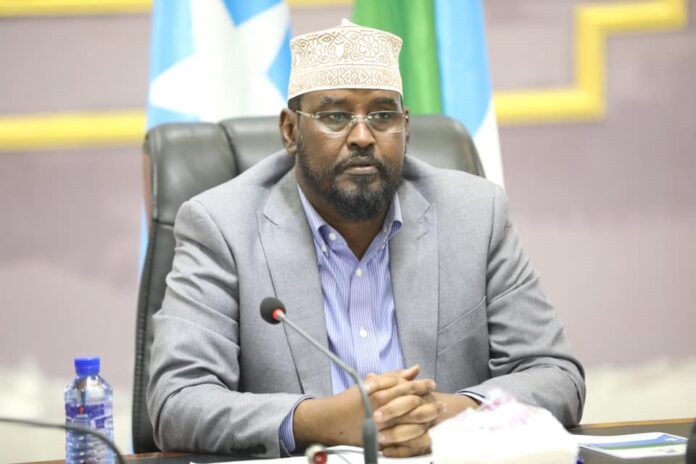MOGADISHU, Somalia – The Federal Government of Somalia has declared an election committee formed by Jubbaland’s President Ahmed Madobe as illegal, a move that intensifies the ongoing political rift over election procedures in the semi-autonomous region, a statement from the Ministry of Internal Affairs revealed on Saturday.
The statement from the ministry explicitly stated that the federal government would not acknowledge any electoral process conducted by this committee, pointing to a prior decision made by the National Consultative Council advocating for a direct “one person, one vote” electoral system nationwide.
This mandate aims to overhaul Somalia’s traditionally indirect election process, where parliament members are selected through clan elders or delegates, to a more democratic and inclusive system.
The controversy has been brewing since President Madobe, whose term officially ended in August 2023, announced the formation of the election committee to manage indirect elections in Jubbaland. This decision has not only contradicted the NCC’s directive but has also sparked a debate on the autonomy of federal member states versus the centralized authority of Mogadishu.
Political analysts suggest that this standoff reflects deeper issues regarding the balance of power between Somalia’s central government and its regional states. Jubbaland, with its strategic location and economic significance due to the port of Kismayo, has been a focal point for these tensions.
The region’s governance has historically been influenced by its neighbors, particularly Kenya, which has military and political interests in the area.
This has shown a split in public opinion, with some supporting the federal government’s stance to maintain a unified approach to elections across Somalia, while others argue for the right of Jubbaland to manage its internal affairs independently.
The federal government’s firm rejection of the Jubbaland election committee could potentially lead to further political instability, especially as al-Shabaab, the militant group, remains a significant threat. Analysts warn that any electoral discord could be exploited by the insurgents to destabilize the region further.
The decision by the Ministry of Internal Affairs underscores a broader challenge in Somalia’s state-building efforts, where the tug-of-war between centralization and regional autonomy continues to define the country’s political landscape.
As Somalia navigates this delicate balance, the international community, including regional powers like Kenya and Ethiopia, watches closely, given their vested interests in Somalia’s stability and security.
The Ministry of Internal Affairs has called for dialogue and adherence to the NCC’s agreement to ensure that Somalia moves forward with a transparent and fair electoral process. However, with President Madobe’s administration asserting its right to proceed with its planned elections, the immediate path to resolution remains uncertain, potentially setting the stage for further legal or political confrontations.





